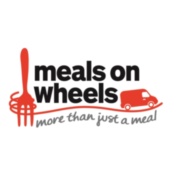Meals on Wheels Report
Vickie Hacking, APSE Principal Advisor, looks at the state of Meals and Wheels provision in the UK, and positive impact the service has on the NHS, social care, and beyond.
The National Association of Care Catering (NACC) – the leading organisation representing caterers working within the care sector – recently commissioned APSE to conduct research into the provision of Local Authority Community Meals on Wheels services in the UK.
Meals on Wheels supports older and disabled people to live independently in the community by reducing the risk of malnutrition, loneliness, and social isolation. Alongside at least one nutritious meal every day, regular caring contact helps reduce avoidable health and care costs, as well as providing support for carers.
APSE found that only 29% of UK local authorities, and less than 18% of English authorities, still offer a Meals on Wheels type service. This is down from a UK average of 48% and an English average of 43% in 2016.
Looking at the costs of maintaining these services, there has been an average increase of 34% in the cost of providing a meal in 2023 – reflecting food price inflation, fuel costs and labour market pressures. Of the local authorities surveyed, the two main reasons given for why they have stopped providing a Meals on Wheels service, were budgetary pressures and the overall cost of provision.
“Meals on wheels services serve as community assets”
In August 2021, UNISON reported that Councils across England, Wales, and Scotland face a £3 billion funding black hole for 2023. The Local Government Association in September 2023 have similarly raised a £3 billion funding gap. These massive budget deficits mean local authorities will be forced into a position where they are required to make difficult decisions regarding what services they provide – with the remaining Meals on Wheels services potentially on the chopping block.
Despite the sharp decline in the number of local authorities providing the service, there is mounting evidence of the benefits that Meals on Wheels provides.
Firstly, Meals on Wheels serves to help ensure a good nutritional intake for users, not only benefiting individuals, but wider health and social care services by decreasing malnutrition risk, supporting recovery from illness and promoting good health. Secondly, it helps to tackle food insecurity, a pertinent issue during a cost-of-living crisis. Research by the University of Hertfordshire found that Meals on Wheels services serve as community assets, having a positive impact in supporting food practices and security.
Finally, in an era where loneliness permeates throughout society - especially in older people - Meals on Wheels provides opportunities for interaction Meals on Wheels Report 2023 Vickie Hacking, Principal Advisor, looks at the state of Meals and Wheels provision in the UK, and positive impact the service has on the NHS, social care, and beyond. 24 that service users might otherwise miss. The delivery of a meal brings regular social interaction which, for many, may be the only human contact they enjoy. It also provides a well-being and safety check, again, crucial for those who may not see anyone else each day. Research conducted at the University of Bristol, which looked at the interaction between service providers and clients, suggests that Meal on Wheels provides significant benefits beyond nutrition.
Although the provision of Meals on Wheels will not solve the ongoing crisis in the NHS and social care, it should be recognised as an important part of a wider solution; helping to achieve priorities set out by local authorities - such as a food strategy - reducing the impact of the cost-of-living crisis and reducing social isolation. With further local authority budget pressures on the horizon, there needs to be a greater recognition from government and council leaders of the positive impact that this vital service provides.
“An absolute lifeline to people who need care and support”
With successive governments extolling the virtues of ‘independence, well-being and choice’ for older people, it is farcical to believe that this can be achieved without an effective Meals on Wheels service. In a time when the NHS, community care and social care services face an unprecedented level of strain, solutions that allow people to live at home for longer are indispensable.
Those who deliver the meals and coordinate the service in local authorities are an absolute lifeline to people who need care and support – I hope that this report will emphasise the urgent attention that is needed to maintain this vital service.


.png)



.png)